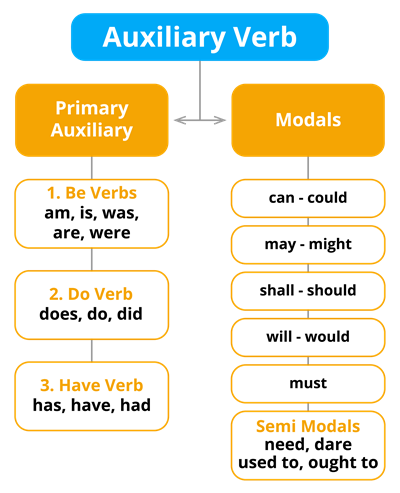PDF chapter test TRY NOW
An auxiliary verb is a combination of Primary auxiliary and the modals.

An Auxiliary verb is a helping verb used with a main verb to form a verb phrase. It indicates tense, mood, grammatical aspects of the main verb.
Three primary forms of primary auxiliary verbs are : "Be", "Have", "Do"
Example:
1. Yes, I have a pen.
2. I am speaking to you now.
3. No. I did not do that.
Modals are also known as modal auxiliary verb. Modal Verbs are verbs that help the main verb to express one of the following:
Ability
Possibility/probability
Instruction
Permission
Obligation
Requests
Offer
Advice
Some of the Primary auxiliary sentences from the lesson "The Great Stone Face II":
- You have read these poems before.
- I have awaited the fulfillment of a prophecy.
- The poet had grand dreams of his thoughts.
- But my life, dear Ernest, has not corresponded with my thoughts.
A few sentences using Modals from the lesson "The Great Stone Face II":
- Ernest hoped that a better person than himself would arrive in the valley one day.
- According to Ernest, 'the poet should be the resemblance of The Great Stone Face'.
- A pure seeker of the good and true like Ernest shall not be hoped to find the face of a mountain in a person like the poet, who himself lacked his faith in his thoughts.
